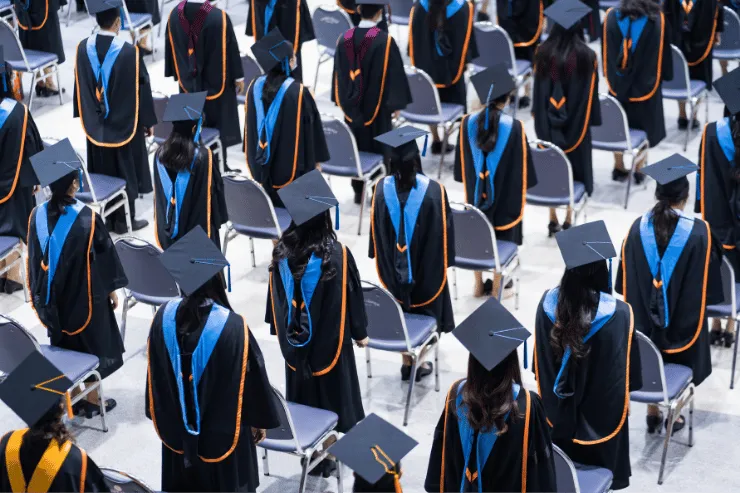
Introduction
The Indian diaspora — spread across countries like the USA, UK, UAE, Canada, Australia, and beyond — is known for making significant contributions in every field, from technology and healthcare to art, education, and social service. While many of these individuals are away from their motherland, their heart often beats for India.
Over the years, a growing number of Indians living abroad have been recognised with honorary doctorates. And with the rise of digital universities, this process has become more inclusive, accessible, and borderless.
But how exactly does the process work? Can an NRI or overseas Indian apply or be nominated? What are the criteria, and how is the award conferred virtually?
Let’s explore how online honorary degrees are helping to honour global Indian achievers, even if they live thousands of kilometres away.
A New Era of Global Recognition
Earlier, most honorary doctorates were conferred by physical universities, requiring recipients to be present at grand convocation halls. But for Indians abroad, especially those with busy schedules or visa restrictions, this was often impractical.
Today, digital universities — many of which are legally registered outside India — are playing a major role in honouring overseas Indians by:
- Accepting international nominations and applications online
- Conducting virtual or hybrid convocations accessible from any location
- Sending certificates and mementoes via courier or digitally
- Offering flexible timelines and virtual verification options
In short, location is no longer a barrier to recognition.
Who Qualifies from the Indian Diaspora?
Online honorary doctorates are typically conferred on overseas Indians who have:
- Excelled in professional fields like technology, law, medicine, finance, or academia
- Made contributions to the Indian community abroad — running temples, language schools, or social platforms
- Helped promote Indian culture, art, or heritage in a foreign country
- Founded or supported NGOs for causes like education, health, or refugee support
- Participated in interfaith dialogue, peacebuilding, or global forums representing India
- Served as goodwill ambassadors for Indian traditions, yoga, or alternative medicine
- Been mentors to Indian-origin youth or student communities abroad
These recipients may be Non-Resident Indians (NRIs), Persons of Indian Origin (PIOs), or Indian passport holders temporarily living overseas.
The Nomination and Application Process
Most digital universities that offer honorary doctorates to overseas Indians follow a simple online process:
- Online Nomination or Application Form – Basic personal and professional details
- Document Submission – CV or bio-profile, proof of contribution, and any awards or media links
- Supporting Material – Letters of recommendation or press articles (if available)
- Identity Verification – Passport copy or Indian origin documentation
- Review and Screening – Usually takes 2–4 weeks by an honorary award committee
- Confirmation and Invitation – If selected, the university sends an official invite to attend the virtual convocation
- Ceremony Participation – Through Zoom, YouTube, or a designated platform
- Certificate Dispatch – Emailed digitally or sent via courier with seal, citation, and degree title
In some cases, universities may also request a nomination fee or ceremonial fee, which is common and transparently explained.
How the Ceremony Happens
Virtual honorary convocations are often held on significant days like:
- Indian Independence Day
- Gandhi Jayanti
- International Yoga Day
- University Foundation Day
- Teachers’ Day
For overseas recipients, the university ensures the time zone is accommodated, and joining is easy through a mobile device or laptop.
Recipients are called upon one by one, with their citation read aloud, and often invited to give a short acceptance speech. Many record it in advance, and it is played live. Families and colleagues can also join to witness the moment.
Post-event, the degree certificate and citation are either emailed or sent physically, depending on the university’s policy.
Why It Matters for Indians Abroad
Receiving an honorary doctorate, even digitally, holds deep emotional and cultural value:
- It reaffirms a connection to Indian identity and contribution
- Provides recognition from an Indian-rooted academic institution
- Inspires other Indian-origin people in the host country
- Brings pride to family, community groups, and cultural associations
- Increases credibility for public speaking, publishing, or advocacy
- Encourages continued collaboration with India or Indian causes
Many recipients display their honorary titles during conferences, seminars, or cultural festivals — reminding the world that distance doesn’t dilute dedication.
Things to Keep in Mind
While the process is straightforward, recipients should ensure:
- The digital university is legally registered and traceable
- It provides a clear honorary citation and verification of the award
- There is a public listing or record of honourees on the website
- The terms used are clear – “Honorary Doctorate” or “Doctor Honoris Causa” – and not misleading
- Any fee involved is explained transparently as part of event or documentation charges
Genuine platforms are respectful, professional, and responsive — making the experience dignified and memorable.
Examples of Real Stories
- A Canada-based yoga teacher honoured for promoting Indian traditional health sciences
- A Dubai-based entrepreneur supporting girl-child education in Bihar through an NGO
- A UK-based retired scientist mentoring Indian research scholars through webinars
- A USA-based musician preserving Indian classical ragas through online concerts
- An Australia-based school principal running weekend Hindi language classes
These are not just symbolic recognitions — they represent the global impact of Indian values, knowledge, and service.
Conclusion
Yes, Indians living abroad can and do receive honorary recognition online. Digital universities have made it possible to acknowledge remarkable contributions across borders, timelines, and disciplines.
With a simple, respectful process and the power of technology, recognition is now within reach — no matter where you live.
So, whether you’re a mentor in Melbourne, a teacher in Toronto, or a social worker in Sharjah, your journey matters. And the world, especially India, is ready to honour it — one virtual convocation at a time.
